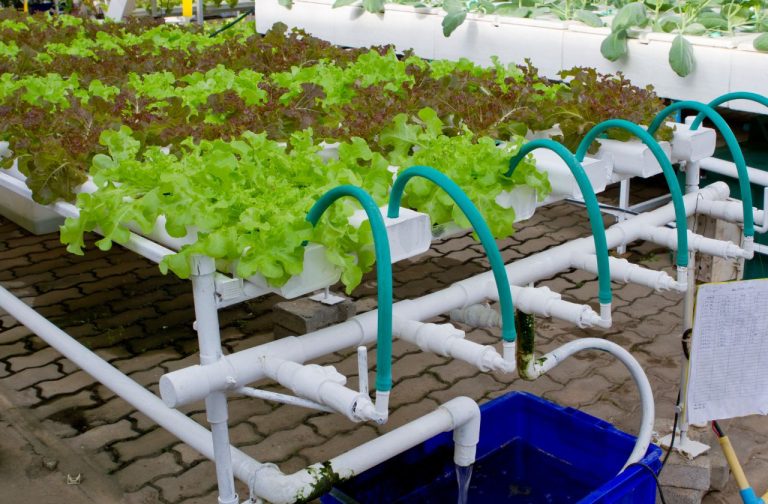How To Homestead On A Budget
I get commissions for purchases made through links in this post. View our Affiliate Disclaimer.
Have you ever wondered if it is possible to homestead on a budget? Homesteading is essentially becoming more self reliant. Some people just throw money at projects to get them done and get their homestead set up. I don’t think this is necessary, and I don’t have the money to throw around!
The ethos of homesteading is also to be frugal and re-use and re-purpose, so isn’t spending a whole lot of cash going against homesteading principles?
I am of the opinion that you can homestead effectively and affordably but putting a little thought into how to homestead on a budget. Here are a few idea to get the thought processes going.
[wpsm_toplist]
How To Homestead On A Budget Tip 1: Buying Land
When you think of buying land, what is the first thing that comes to mind? Big bucks! Buying land does not have to be expensive. Rather than looking for an established farm to buy, why not look at land that needs some TLC. If you are up for the challenge, look for some undeveloped land that does not have any structures or dwellings on it. You can then design and build your own self-sufficient, eco-friendly, green home!
These types of properties are often substantially lower in price than developed, ready to farm land.
The main things to look out for when purchasing land is the accessibility to water, and the slope of the land. The ideal would be to have your own spring, or underground water supply and a flat or gently sloping gradient. Steeply sloping land can be difficult to farm, but not impossible. It would require a bit more work to terraform the land to your needs.
How To Homestead On A Budget Tip 2: Find Free Animals
Most people who decide to homestead will eventually keep their own livestock. It is the natural progression towards becoming self reliant. Livestock can be an important resource, from providing milk and eggs to meat and even fertilizer! Learning how to homestead on a budget means learning to be resourceful! Look around in your neighborhood for animals being given away for free or at a low price.
Here are a few potential sources.
- Petting zoos will often want to get rid of their excess stock from pregnancies.
- People may want to get rid of family pets like goats or pigs because they are tired of caring for them or no longer have the capacity.
- Check out local farmers markets. Farmers will often want to get rid of excess animals, particularly males, and they will be at bargain prices. If you look hard enough, you will be able to find free animals.
- If you cant find any suitable free livestock, you can try and barter with other homesteaders in your area, trading something you have for livestock.
[content-egg module=Amazon template=custom/grid4 next=4]
How To Homestead On A Budget Tip 3: Source Low Cost Building Material
There are many places where you can source either low cost building material, even free material.
- Local online classified sites and publications are great sources for free building materials. You can find things from chicken coops to wood, cages and fencing, either at low cost or for free – as long as you collect.
- Building sites have leftover material that they normally have to pay to have removed. Offer to remove the excess for free if you can have the material. You can source anything from bricks, wire, plumbing pie off cuts to metal sheeting and scrap wood.
- Manufacturing and warehousing companies often throw away wood pallets. Wood pallets have a myriad of uses on the homestead and can be a valuable resource for your projects.
How To Homestead On A Budget Tip 4: Plant Indigenous Produce
Growing your own food is core to homesteading and is an undertaking that you should research and plan for. Investigate if there are any natural, indigenous, food producing plants in your area that you can cultivate in your garden. These plants would be used to the climate and thrive with relatively little care.
If you do plant vegetables that are not native to your region, be sure to plant heirloom seeds. These seeds are usually cheaper, produce staggered fruit and viable seed that you can save for the next season. This will grow your seed bank so you don’t have to buy seed the next season. Seeds are also a trading commodity. Trade seeds with other homesteaders in your area to get expand your variety.
[content-egg module=Amazon template=custom/grid4 next=4]
How To Homestead On A Budget Tip 5: Save Seeds
Saving seeds is a progression from the previous point. Save seeds from some of your strongest plants and best fruits. Store them for planting the following season. This saves you having to buy new seed or seedlings every year.
The best way to start your seed saving process is to use heirloom seeds to plant your first crops.
This will ensure that the seeds you get from the mature fruit will be viable and continue producing. Many GMO seeds, besides not being good for you, are engineered to not produce viable seed, or the plant grown from the seed is not strong and wont bear fruit.
How To Homestead On A Budget Tip 6: Network
Networking with other homesteaders is a much underrated resource! Go out of your way to meet and make friends with local farmers and homesteaders in your area. They are usually people with the same mindset as you and will understand community. Your community can be a great resource for knowledge and assistance. They will often even give you things to get started – a couple chickens here and there, scrap material and the like!
Make sure you participate in the community and offer to help others where you can. What goes around, comes around!
How To Homestead On A Budget Tip 7: Recycle, Re-use and Re-purpose
There are many ways of recycling and re-purposing items on the homestead. All of these methods will save you money. As the saying goes, one man’s trash is another man’s treasure!
This comes down to being resourceful and thinking of ways to re-use items and material that we would normally throw away.
Here are a few ideas along this line of thinking.
- Save your organic kitchen waste to make compost. Starting a worm farm is a great way to do this.
- Make mini greenhouses from clear plastic bottles for propagating cuttings pile
- Turn used 2 litre soda bottles into watering cans by making small holes in the cap.
- Use scrap wood to make raised vegetable garden beds, or a trellis for your climbing plants.
- Used coffee grounds have many applications for the homesteader. It makes a great compost for a start!
You will be surprised at how much you can save by re-using and re-purposing throw away items. Next time as you are about to throw something away, stop and think how you can re-purpose it for another task on the homestead!
[content-egg module=Amazon template=custom/grid4 next=4]
How To Homestead On A Budget Tip 8: Earn Money
Living off the land on your homestead is a great way of life, but let’s face it, we all need cash in the bank! Instead of seeing your homestead as just being a means to provide for yourself, see it as an income generator.
If you raise chickens, consider selling some of the eggs, or hatch some eggs and sell the chickens. Bees are a great income producer. There is always a market for fresh raw honey!
If you have a great year with your livestock production, consider selling some of the new additions, particularly if you are short of space.
Canned and fermented produce from your garden can also do well at local farmers markets, or selling to your community.
Homesteading is a busy lifestyle, but sometimes we need to slow down and think laterally on how we can do things better, more efficiently and cost effectively. A little thought time to get the ingenuity juices flowing will go a long way to reducing your costs and learning how to homestead on a budget!
[content-egg module=Amazon template=custom/grid4 next=4]
Get more posts like this
Subscribe to our mailing list and get interesting homesteading and green living info and updates to your email inbox.
Thank you for subscribing.
Something went wrong.








Some good money saving ideas here and equally useful for anyone starting a garden or allotment.